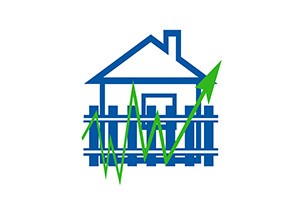Variances
 Real Estate Lawyers Representing Boston Property Owners
Real Estate Lawyers Representing Boston Property OwnersProperty owners can make changes to their land and structures, as long as the change complies with the local zoning ordinance. Any change or use that deviates from the ordinance will require a variance from the local zoning board. At Pulgini & Norton, our real estate lawyers advise homeowners in zoning and land use matters. Before you invest in any changes to your property, contact a Boston variances attorney at our firm to learn about whether the change is permissible, or if you need to seek approval from the zoning board.
VariancesDespite owning their homes and land, property owners are not entirely free to make changes to their property. Their changes must comply with local zoning ordinances. A zoning ordinance is a set of rules and regulations that specifies the use of property and the regulation of buildings and structures in a given zone. A zone may be designated as commercial, residential, industrial, or mixed use. In addition to use, the zoning ordinance can regulate a structure’s height, size, and placement in any given zone.
A zoning ordinance will specify what types of uses and changes a property owner can make. If the change is in compliance with the ordinance, the property owner can move forward with the change without seeking permission from the board. Some changes require a special permit. The zoning ordinance will specify what types of uses and changes require a special permit from the local zoning board.
If the change or use is not explicitly permitted under the ordinance, or is contrary to the ordinance, the property owner will need a variance. This is an exception to the local zoning ordinance that allows a property owner to change or use his or her property in a manner that is otherwise impermissible. In other words, a variance gives the property owner the ability to build, construct, or otherwise use the property in a way that deviates from the local zoning rules. Variances are typically required when a particular use or structure fails to meet certain criteria, or when a parcel of land falls short of area requirements. For instance, a homeowner may want to build an addition to his or her home (such as a garage), but he or she may fall short of the minimum dimensional requirements. A variance could allow the homeowner to build the garage despite falling short of the minimums.
Obtaining a VarianceA property owner must request a variance from the local zoning board. Under Massachusetts law, a local zoning board can grant a variance only after a public hearing, and only if it finds that:
- Adherence to the ordinance would be a substantial hardship to the property owner;
- The request would not pose a substantial detriment to the public; and
- The request does not go against the purpose of the ordinance.
The local zoning board can also impose conditions and limitations on the variance. For example, if a property owner wants to build a garage, the board can limit the variance to building onto the property, but not for building above the structure itself.
Variances must be exercised within one year from the date they are granted. The local zoning board may grant an extension for up to six months, as long as the extension is filed before the expiration of the one-year period.
A property owner can appeal if a variance request is denied or challenged. An appeal involves a careful review of the materials filed in support of, and opposed to, the variance, as well as the relevant zoning ordinance. A careful analysis of the board’s findings and legal conclusions can help prepare a powerful appeal.
Seek Legal Guidance from a Variances Attorney in BostonThe zoning attorneys at Pulgini & Norton counsel and represent Boston property owners in many land use matters, including variances. We can advise you on whether your proposed change complies with local regulations, or if it requires permission from the zoning board. Whether you are filing an initial request for a variance or appealing a decision, our Boston real estate lawyers can assist you throughout the legal process. We represent property owners in Hyde Park, Malden, and Somerville, among other communities. Call our office today at 781-843-2200, or contact us using our online form to schedule a consultation.
 Pulgini & Norton, LLP Home
Pulgini & Norton, LLP Home





